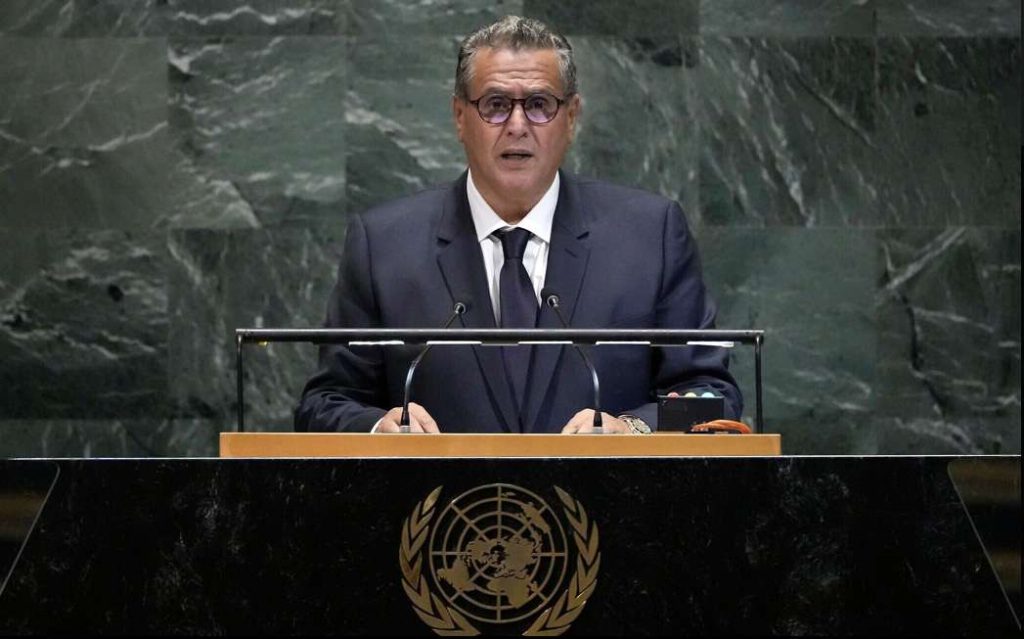Morocco calls for stronger African representation

Morocco has called for greater African representation in international decision-making at this year’s United Nations Global Assembly (UNGA), the Moroccan government-friendly North Africa Post reported, September 25th.
Addressing the Assembly, Prime Minister Aziz Akhannouch urged the international community to support African-led initiatives and recognise Africa’s role as a partner in building global resilience.
He emphasised Africa as central to King Mohammed VI’s foreign policy vision, stating it “is not just a geographical extension of Morocco, it is the heart of our strategic thinking.”
He went on to highlight initiatives by the King to strengthen intra-African solidarity, one of which includes the Atlantic initiative, which focuses on creating working groups in African Sahel countries to propose ways to establish their access to the Atlantic Ocean.
Akhannouch also referenced the Morocco-Nigeria gas pipeline, which will be linked to the Maghreb-Europe gas pipeline and the European gas network. It will supply natural gas to landlocked countries, including Niger, Burkina Faso and Mali. The Prime Minister presented the pipeline as a transformative project for energy and climate cooperation.

Many African leaders at this year’s UNGA were aiming to secure a stronger voice in global governance, advance peace and security and mobilise resources for sustainable development.
This year’s theme, “Better Together: 80 years and more for Peace, Development and Human Rights”, presented an opportunity for leaders to push for reform, reflect on growing geopolitical relevance and address historical marginalisation.
African nations also took the opportunity to voice support for Palestine, drawing parallels between the situation in Palestine and Africa’s colonial history.
The African Union is seeking two permanent seats on the Security Council to represent the continent but analysts say the path to reform is steep. Aspirations for greater representation have been tempered by conflicts in the Sahel and the Democratic Republic of the Congo.
Any change to African representation would require a two-thirds majority of UN member states and ratification by the five permanent members, none of whom have demonstrated a willingness to share power.
African nations remain committed to international agendas including climate justice, fair trade, peace building and institutional reform.
The North Africa Post, Maghrebi.org
Want to chase the pulse of North Africa?
Subscribe to receive our FREE weekly PDF magazine










